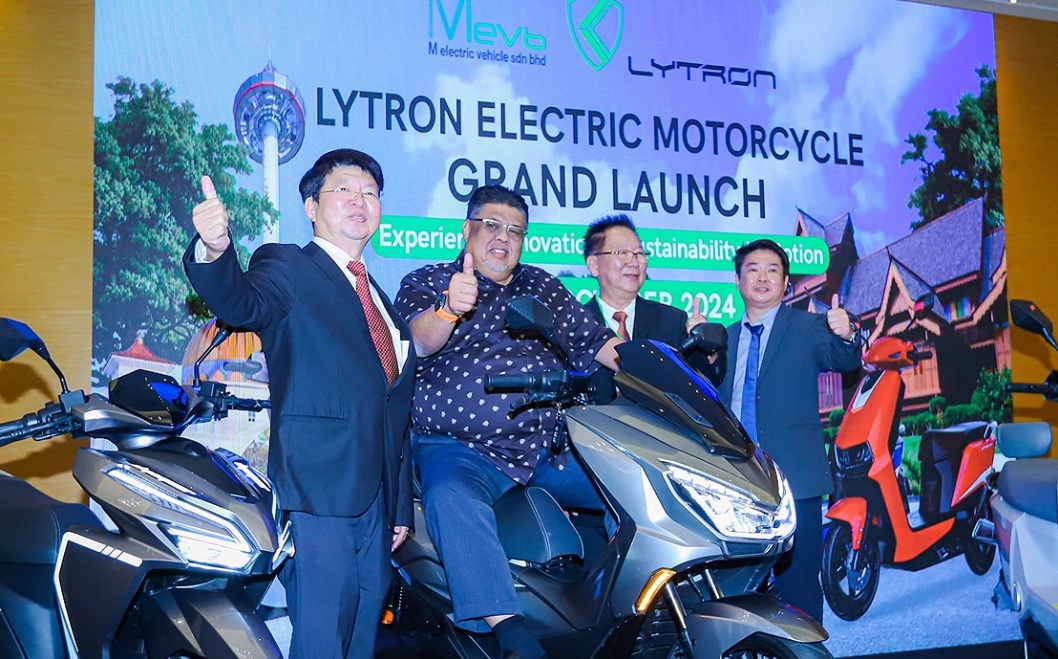The Malaysia Productivity Corporation (MPC) recently launched the electric and battery management (EVBM) guidelines to ensure public safety, environmental protection and the sustainability of Malaysia’s EV ecosystem.
In light of this, Investment, Trade and Industry Ministry (MITI) Secretary-General Datuk Hairil Yahri Yaacob noted that the government is able to protect the environment and boost productivity by creating a more efficient and sustainable framework for stakeholders, particularly in regard to safe handling, transportation and disposal of EV batteries.
“The EVBM guidelines present clear benefits for the industry and the country. Most importantly, our industry-developed guidelines that prioritises safety and environmental responsibility. By outlining best practices for handling and transporting EV lithium batteries, we ensure the prevention of fire and explosion hazards.
“This approach also minimises environmental impact, helping us align with global standards in sustainability while protecting our communities and the environment, which is a result of a collaborative efforts across the entire industry,” Hairil said.
The development of the EVBM guidelines that was led by Northport (Malaysia) Bhd in partnership with business and regulators across the EV ecosystem, which was facilitated by MPC with support from the Malaysia Automotive Robotics and IoT Institute (MARii).
Apart from being a framework for self-regulation that ensures safety, the guideline provides valuable input and feedback from businesses, consumers and regulators to provide solutions that are comprehensive, effective and reflective of the needs and concerns of stakeholders.
“These guidelines are not just about maintaining standards, but also about driving market confidence. By adhering to these high standards, we signal to the market that are committed to excellence. This in turn will boost industry growth and improve productivity, fostering a stronger, more resilient EV and battery management sector,” he said.
Hairil also mentioned that the launch of the EVBM guidelines is a key step towards strengthening Malaysia’s positioning as a regional manufacturing hub for electric mobility and attracting future green technology investments. It is a foundational tool for businesses within the EV sector as it enables them to meet safety, environmental and regulatory requirements.
Additionally, MPC Director General Zahid Ismail believes that the guidelines would empower the industry to self-regulate, making compliance more straightforward and giving businesses the freedom to focus on boosting productivity and enhancing competitiveness.
“By taking control of their regulatory practices, companies can maintain high safety and environmental standards while driving innovation and growth,” he said.
Meanwhile, the Melaka state government is committed to positioning the state as a leading hub for EV production in Malaysia with the first Lytron brand electric motorcycle plant in Ayer Keroh that is in line with the Sustainable Development Goal 13 (SDG13) to combat climate change and its impacts.

On this, Chief Minister Datuk Seri Ab Rauf Yusoh said the use of EVs is crucial in supporting efforts to promote low-carbon mobility practices among Malaysians, which will accelerate the government’s aspiration of achieving a carbon-neutral country by 2050.
“It is also a strategic and comprehensive initiative to address climate change and promote the development of renewable energy (RE),” Rauf said.
The factory, operating under the supervision of Lytron Sdn Bhd and managed by M Electric Vehicle Sdn Bhd (MEVB), is involved in the production and assembly of electric motorcycles as well as the marketing and distribution worldwide.
“So far, I understand that 1,000 units of Lyton electric motorcycles will be marketed in Melaka first for the local market, following approval from MITI. We have asked Zhejiang Luyuan Electric Vehicle Co. Ltd from China to further expand their investment in Melaka through its technology partner, MEVB to further advance electric technology development in Malaysia,” he added.
Apart from that, Rauf also expects the electric motorcycle plant to create job opportunities for graduates of Technical and Vocational Education and Training (TEVT) from higher education institutions in the state.













![[Latest] Global Data Center CPU Market Size/Share Worth USD 48.9 Billion by 2033 at a 15.2% CAGR: Custom Market Insights (Analysis, Outlook, Leaders, Report, Trends, Forecast, Segmentation, Growth, Growth Rate, Value)](https://energy.asia/wp-content/uploads/2024/12/global-data-center-cpu-market-2024-2033-by-billion--120x86.png)




